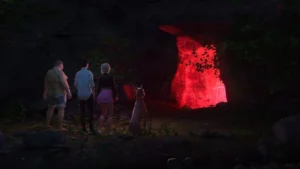
Apocalust
Play Apocalust
Apocalust review
Explore the unique features, gameplay, and story of Apocalust
Apocalust is a captivating adult-themed game that blends immersive storytelling with interactive gameplay. In this article, we’ll explore what makes Apocalust stand out, from its narrative depth to its engaging mechanics. Whether you’re new to the game or looking to deepen your experience, this guide will provide insights and practical tips to enhance your journey through Apocalust.
Understanding Apocalust: Gameplay and Storyline
Ever found yourself scrolling through endless game libraries, feeling that itch for something truly different? Something that doesn’t just hand you a gun and a linear path, but actually values your decisions and makes you care about the people you meet? 😮💨 That was me before I stumbled into the world of Apocalust. This isn’t your typical post-apocalyptic shooter; it’s a deep, character-driven experience that had me completely hooked from the first dialogue choice. It masterfully blends a gripping Apocalust narrative with interactive systems that make you feel like a true architect of your own destiny. If you’re tired of games that play it safe, you’re in for a treat. 🎮
### What is Apocalust? An Overview
So, what exactly is this game? At its heart, Apocalust is a narrative-rich interactive adult game set against the backdrop of a world rebuilding from collapse. 🏙️➡️🗑️ Forget the desolate, grey wastelands you might be picturing—this world is vibrant, dangerous, and full of life, both beautiful and treacherous. The core premise is survival, but not just of your body; it’s about the survival of your humanity, your relationships, and your sanity in a world that has forgotten the old rules.
The brilliance of the Apocalust story is that it doesn’t treat you as a silent protagonist along for the ride. You are an active participant. The game establishes this from the very first moments, forcing you to make choices that immediately define who you are. Are you a pragmatic survivor willing to do anything to live another day, or do you cling to the ghost of a moral code from a dead world? This foundational question is what the entire Apocalust experience is built upon. I remember my first major decision—whether to risk my scarce medical supplies on a wounded stranger. My gut said no, but my conscience won. That single act of (foolish?) kindness rippled outwards, opening up an entire story branch I would have missed entirely. It was a powerful lesson that my player choices in Apocalust truly mattered.
### Key Gameplay Mechanics in Apocalust
The Apocalust gameplay is where the magic really happens, seamlessly weaving interaction into the fabric of the story. It’s a masterclass in how to make mechanics serve the narrative, not the other way around. You won’t find skill trees for “++10% Headshot Damage” here. Instead, progression is measured in trust, influence, and unlocked conversational pathways.
Let’s break down the core gameplay mechanics in Apocalust:
-
Dialogue & Relationship System: This is the absolute backbone. Every conversation is a potential pivot point. Your choices can build trust, spark romance, create bitter enemies, or uncover hidden secrets. The system is nuanced, often presenting you with options that aren’t clearly “good” or “evil,” but shades of grey that reflect the messy reality of the setting. Building a relationship with a key character isn’t just about picking the flirty option; it’s about consistently supporting their goals and demonstrating your values.
-
Resource Management with a Twist: You manage resources like food, ammo, and medicine, but their primary use isn’t just for you. Do you use your antibiotics to cure a fever and gain a loyal ally, or hoard them for a future crisis? These decisions directly impact who will stand with you when things get tough. It turns every inventory check into a moral puzzle.
-
Exploration and Discovery: The world is packed with environmental storytelling. Abandoned notes, decaying landmarks, and hidden caches don’t just provide loot; they flesh out the history of the collapse and the personal stories of those who didn’t make it. Finding a child’s drawing in a overgrown playground hit me harder than any scripted cutscene could have. 😢
To see how these systems work in harmony, check out this comparison:
| Gameplay Feature | Primary Function | Narrative Impact |
|---|---|---|
| Dialogue Wheel | Player expression and character interaction | Determines alliance status, unlocks personal quests, and alters story endings |
| Trust Meter | Tracks relationship status with key characters | High trust unlocks unique dialogue and assistance; low trust can lead to betrayal |
| Scavenging | Gathering critical resources | Finding specific items can trigger memory sequences or resolve character-specific conflicts |
| Base Management | Upgrading a safehouse and assigning tasks | Improving living conditions boosts group morale, which influences ending scenarios |
This tight integration means the Apocalust gameplay never feels like a separate thing you “do” between story bits. Talking is gameplay. Helping someone is progression. It’s incredibly effective. 🙌
### Narrative and Character Development
The Apocalust story is a slow burn, a character study set in a pressure cooker. It’s not about finding a macguffin to save the world; it’s about finding a reason to want to save what’s left of it. The plot unfolds organically based on who you befriend, who you alienate, and which factions you choose to support. I’ve spoken to other players who experienced completely different major story beats because they took a harder line with a particular group than I did. The Apocalust narrative is, in many ways, a reflection of the player’s own personality.
This is all powered by its incredible cast. The Apocalust characters are some of the most well-written and voice-acted I’ve encountered. They are flawed, complex, and haunted by their pasts. You’re not meeting NPCs; you’re meeting people.
-
Kaelen: A former engineer plagued by guilt over technology he helped create before the collapse. He’s brilliant but deeply cynical. Gaining his trust required me to engage with his intellectual puzzles and acknowledge his past mistakes without judgment. His personal questline was one of the most rewarding arcs I’ve played in any game.
-
Elara: A fierce hunter who acts as the group’s primary protector. She projects strength but carries the weight of every life she couldn’t save. My relationship with her evolved from one of mutual respect to a deep, protective bond because I consistently had her back in combat scenarios and supported her leadership decisions.
The development of these Apocalust characters is directly tied to your actions. Ignore their personal struggles, and they remain closed-off and one-dimensional. Invest in them, and they reveal hidden depths, fears, and hopes that make the world feel truly alive. 😊 Your player choices in Apocalust don’t just change the ending slideshow; they change the very people fighting alongside you, making the journey toward any ending a uniquely personal one. This is the golden standard for an interactive adult game—a world that reacts, characters that evolve, and a story that belongs entirely to you.
Apocalust offers a unique blend of storytelling and gameplay that appeals to players seeking an immersive adult-themed experience. Its engaging characters, meaningful choices, and well-crafted narrative create a memorable journey. Whether you’re exploring the story for the first time or revisiting to uncover new paths, Apocalust delivers an experience worth diving into. Ready to start your adventure? Jump into Apocalust and discover what awaits.




















